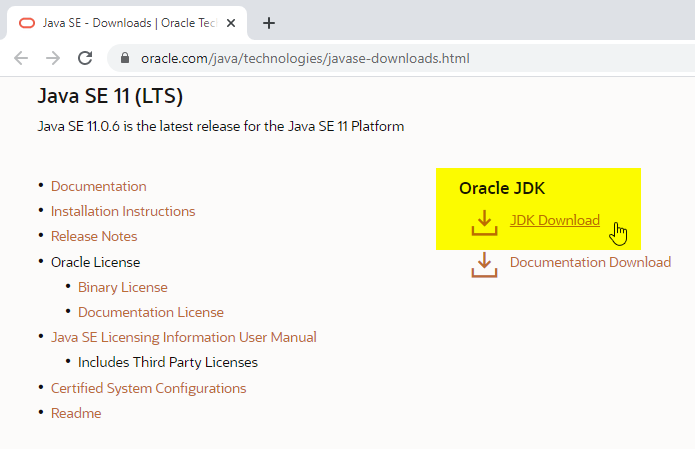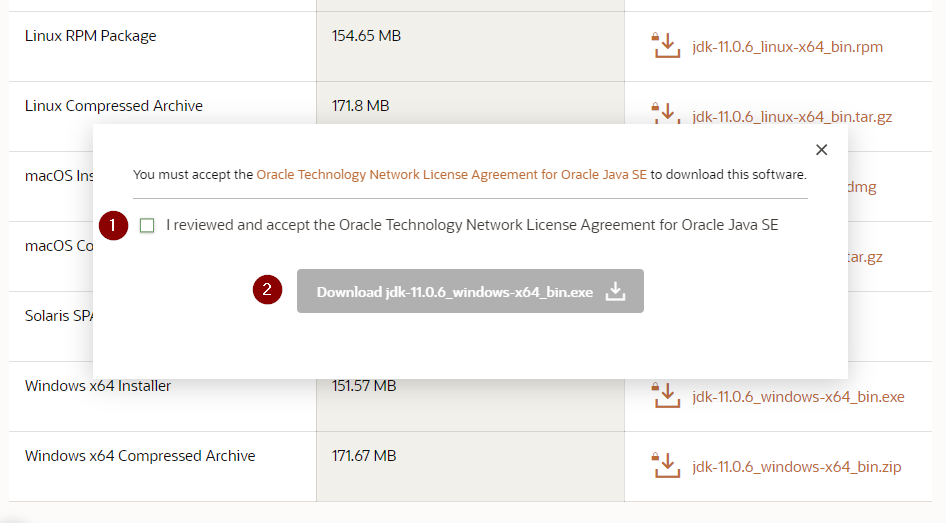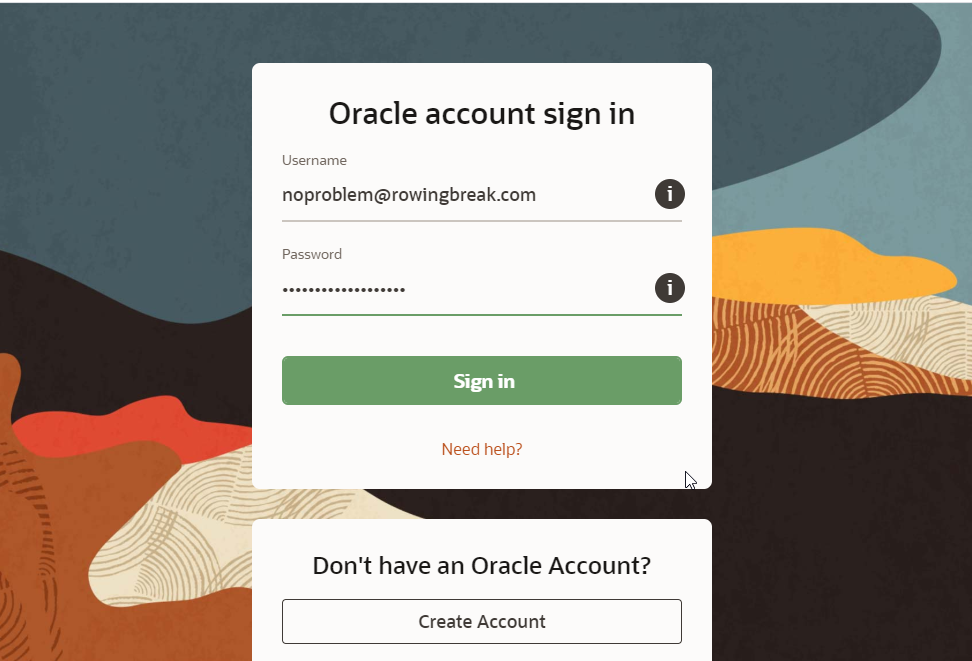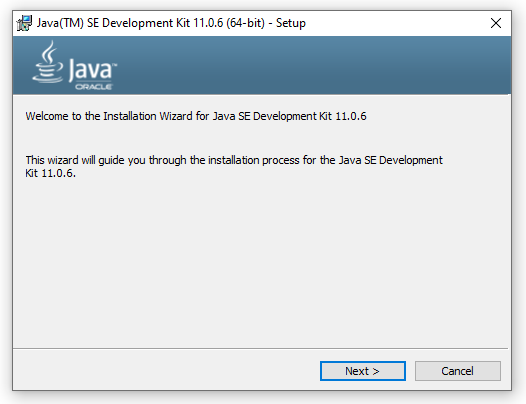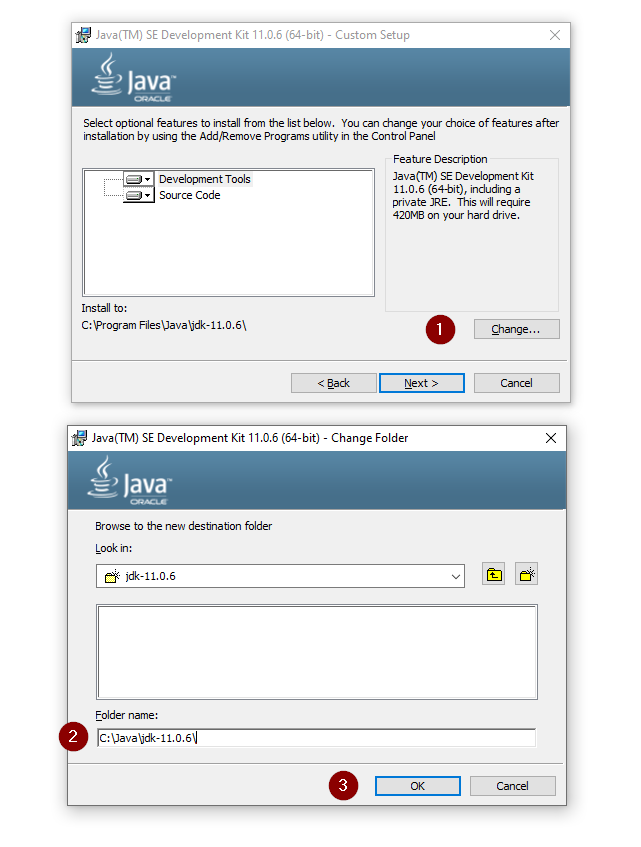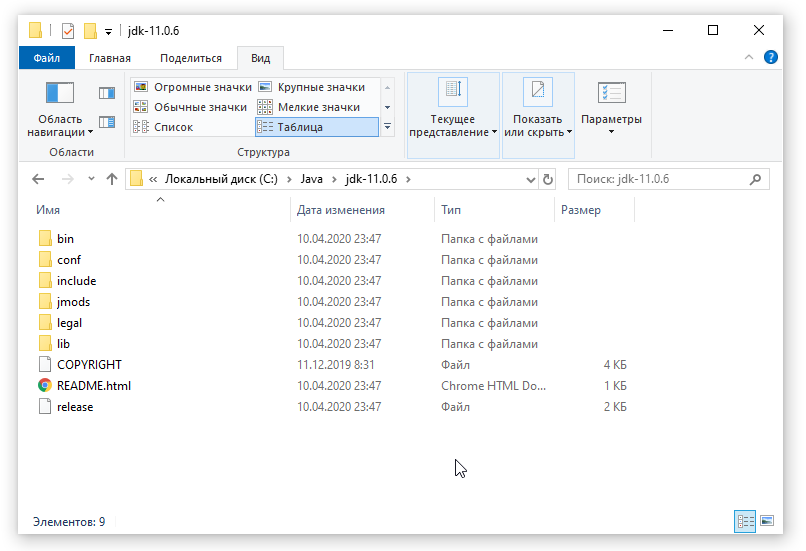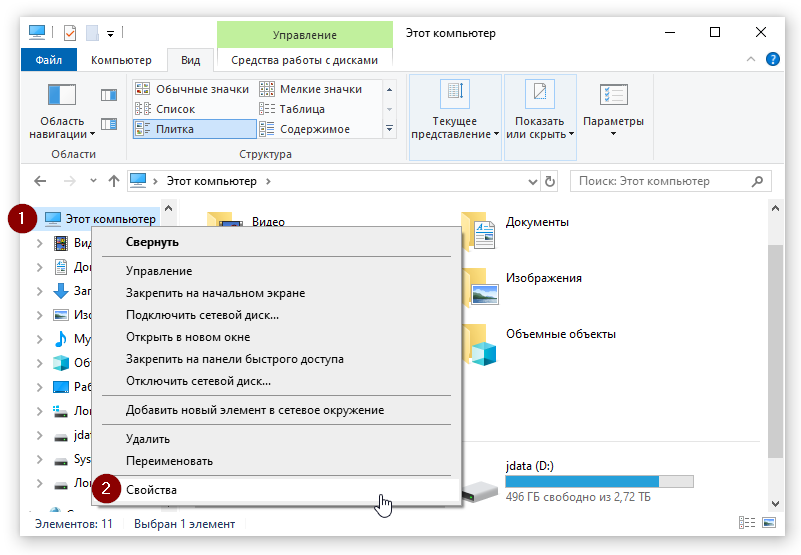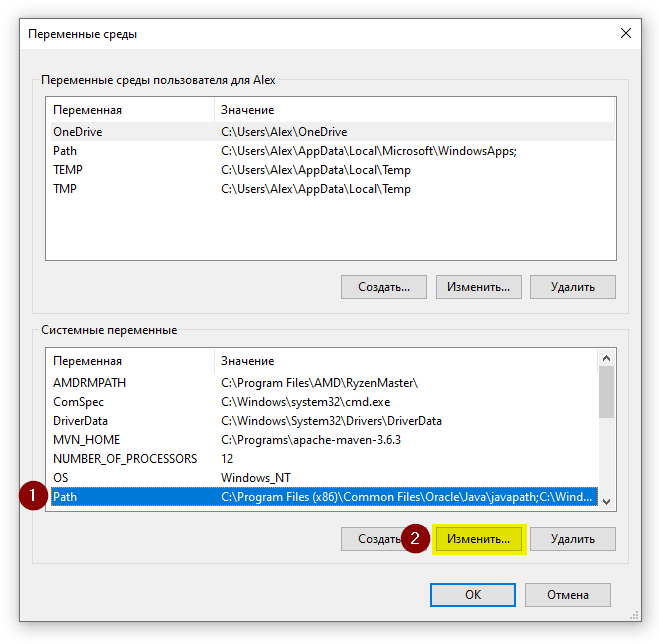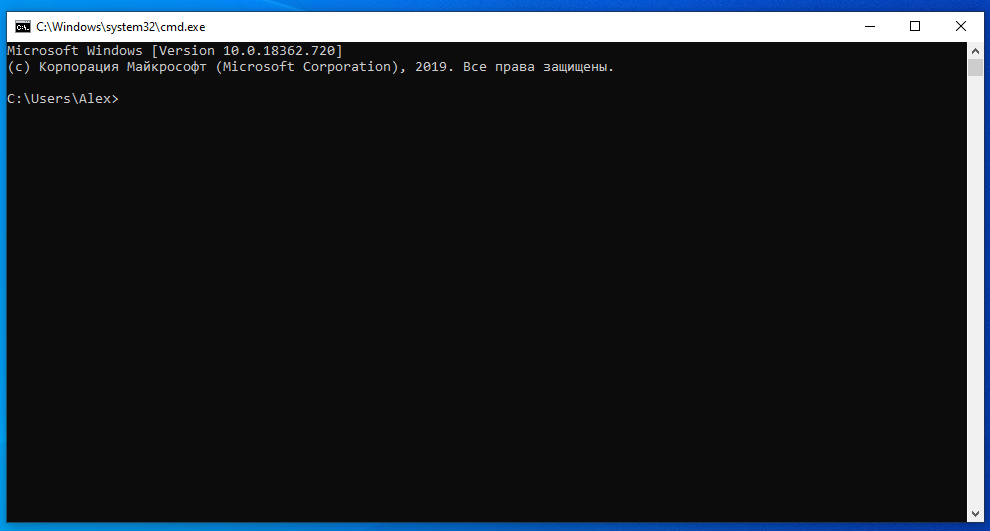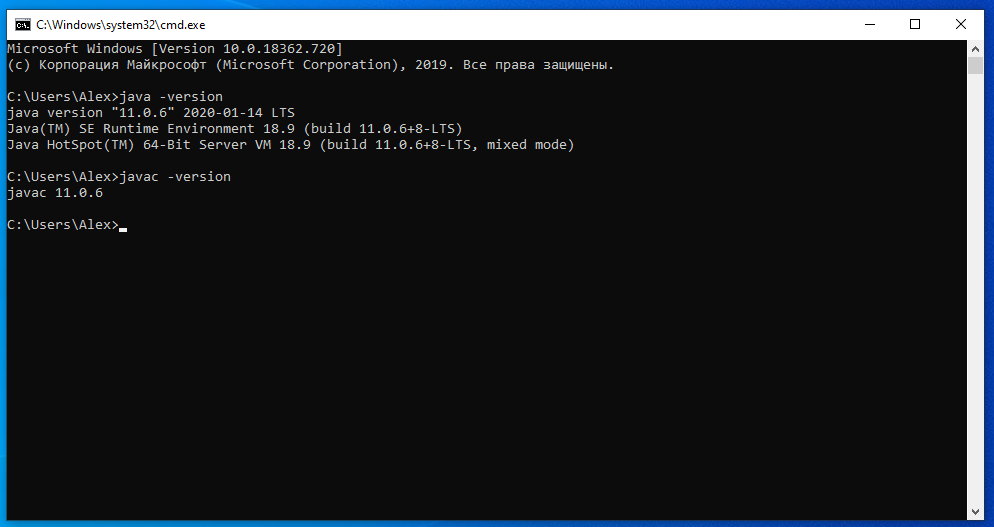How to install jdk on windows 10
15 JDK Installation for Microsoft Windows
This page describes how to install and uninstall JDK 8 for Windows.
The page has these topics:
See «JDK 8 and JRE 8 Installation Start Here» for general information about installing JDK 8 and JRE 8.
System Requirements
See http://www.oracle.com/technetwork/java/javase/certconfig-2095354.html for information about supported platforms, operating systems, and browsers.
See «Windows System Requirements for JDK and JRE» for minimum processor, disk space, and memory requirements.
The JDK and JRE have a version string that enables you to determine the version number. See http://www.oracle.com/technetwork/java/javase/jdk8-naming-2157130.html for information about Java SE 8 version numbers.
The JDK has the option of installing the public JRE. For more information about JRE installation, see «JRE Installation for Microsoft Windows».
Installation Instructions Notation
For any text in this document that contains the following notation, you must substitute the appropriate update version number:
Installation Instructions
In these instructions, you run the self-installing executable file to unpack and install the JDK. As part of the JDK, this installation includes an option to include the public Java Runtime Environment. (The JDK also contains a private JRE for use only by its tools; see «Private Versus Public JRE» for more information.)
Install the JDK by doing the following:
Downloading the Installer
If you save the self-installing executable file to disk without running it from the download page at the web site, note the file size specified on the download page. After the download has completed, verify that you have downloaded the complete file.
Running the JDK Installer
You must have administrative permissions in order to install the JDK on Microsoft Windows.
Installers for JDK 7u6 and later install the JavaFX SDK and integrate it into the JDK installation directory. Installers for JDK 7u2 to 7u5 install the JDK first, then start the JavaFX SDK installer, which installs JavaFX SDK in the default directory C:\Program Files\Oracle\JavaFX 2.0 SDK or C:\Program Files (x86)\Oracle\JavaFX 2.0 SDK on 64-bit operating systems. If you want to install the JavaFX SDK (version 2.0.2) with JDK 7u1 or earlier, see http://docs.oracle.com/javafx/2/installation/jfxpub-installation.htm for more information.
Java Start Menu
Starting with JDK 7u40 release, Java menu items are added to the Windows Start Menu to provide easy access to Java resources.
During JDK install, a Java Development Kit folder is created in the Windows Start Menu, which contains the following items:
Reference Documentation: Opens the Online API documentation web page.
Java Mission Control: Opens the Java Mission Control profiling and diagnostics tools suite.
During JDK install and uninstall processes, the appropriate start menu items are updated to be associated with the latest JDK version on the system
Java Mission Control is a commercial feature available to users with a Java SE Advanced license.
Installing the JDK Silently
| Installation Scenario | Command |
|---|---|
| Install the public JRE in silent mode | |
| Install development tools and source code in silent mode but not the public JRE | |
| Install development tools, source code, and the public JRE in silent mode | |
| Install the public JRE in the specified directory C:\test\ in silent mode |
Updating the PATH Environment Variable
If you do not set the PATH variable, you need to specify the full path to the executable file every time you run it, such as:
It is useful to set the PATH variable permanently so it will persist after rebooting.
Click Start, then Control Panel, then System.
Click Advanced, then Environment Variables.
Add the location of the bin folder of the JDK installation to the PATH variable in System Variables. The following is a typical value for the PATH variable:
The PATH environment variable is a series of directories separated by semicolons ( ; ) and is not case-sensitive. Microsoft Windows looks for programs in the PATH directories in order, from left to right.
You should only have one bin directory for a JDK in the path at a time. Those following the first instance are ignored.
If you are not sure where to add the JDK path, append it.
The new path takes effect in each new command window you open after setting the PATH variable.
Starting to Use the JDK
Use the Java item in the Windows Start menu to get access to essential Java information and functions, including help, API documentation, the Java Control Panel, checking for updates, and Java Mission Control.
If you are new to developing and running programs in the Java programming language, see http://docs.oracle.com/javase/tutorial for some guidance. Note especially the tutorial trails under the heading Trails Covering the Basics.
Uninstalling the JDK
To uninstall the JDK, use the «Add/Remove Programs» utility in the Microsoft Windows Control Panel.
Uninstalling the JDK in Silent Mode
You can use the command line for uninstalling the JDK.
For example, to uninstall Java 8 update 251, run the command:
This command can be run from anywhere.
The msiexec.exe executable is located in the windows system directory.
A reboot is required only if some files are in use during uninstallation; it is not necessary everytime. However, to manually suppress reboot while uninstalling, append REBOOT=R option to the command.
setup.log» option to the command if you want to create a log file describing the uninstallation status.
Windows Installer dialog appears prompting you for confirmation. Click Yes to uninstall JDK.
Finding the JDK Registry Key and UninstallString Value
Go to Start and type regedit.
Under the Uninstall folder, you will find many registry entries within curly brackets.
Click Edit and then Find.
Highlight Uninstall folder before performing search for a particular registry.
Enter version string as value to find corresponding registry key. Follow format 1.8.0.xxx. For example, enter jre1.8.0.251.
The registry key is highlighted on the right-hand side of the pane and values of various uninstall strings are displayed on the left-hand pane.
Note the value of the UninstallString.
Installed Directory Tree
See http://docs.oracle.com/javase/8/docs/technotes/tools/windows/jdkfiles.html for a description of the directory structure of the JDK. (Note that the file structure of the JRE is identical to that of the JDK’s jre directory.)
Installation Troubleshooting
Below are some tips for working around problems that are sometimes seen during or following an installation:
Corrupt Cabinet File
If you see the error message «corrupt cabinet file,» then the file you have downloaded is corrupted. Check the file size against the expected file size listed in these instructions. If sizes do not match, try downloading the bundle again. (A cabinet file contains compressed application, data, resource, and DLL files.)
System Error During Decompression
If you see the error message «system error during decompression,» then you might not have enough space on the disk that contains your TEMP directory.
Program Cannot Be Run in DOS Mode
If you see the error message «This program cannot be run in DOS mode,» then do the following:
Open the MS-DOS shell or Command Prompt window.
Right-click the title bar.
Choose the Program tab.
Click the Advanced button.
Ensure that the item «Prevent MS-DOS-based programs from detecting Windows» is not selected.
Exit the MS-DOS shell.
Restart your computer.
Private Versus Public JRE
Installing the JDK also installs a private JRE and optionally a public copy. The private JRE is required to run the tools included with the JDK. It has no registry settings and is contained entirely in a jre directory (typically at C:\Program Files\jdk1.8.0\jre ) whose location is known only to the JDK. On the other hand, the public JRE can be used by other Java applications, is contained outside the JDK (typically at C:\Program Files\Java\jre1.8.0 ), is registered with the Windows registry (at HKEY_LOCAL_MACHINE\SOFTWARE\JavaSoft ), can be removed using Add/Remove Programs, might be registered with browsers, and might have the java.exe file copied to the Windows system directory (which would make it the default system Java platform).
Source Files in Notepad
Characters That Are Not Part of the System Code Page
It is possible to name directories using characters that are not part of the system locale’s code page. If such a directory is part of the installation path, then generic error 1722 occurs, and installation is not completed. Error 1722 is a Windows Installer error code. It indicates that the installation process has failed. The exact reason for this error is not known at this time.
To prevent this problem, ensure that the user and system locales are identical, and that the installation path contains only characters that are part of the system locale’s code page. User and system locales can be set in the Regional Options or Regional Settings control panel.
Установка JDK в Windows
В этой статье мы установим JDK 11 на Windows. Java Development Kit (JDK) – это набор программ и библиотек для разработки программ на Java. Если вы хотите разрабатывать на Java программы, сперва вам нужно установить актуальную версию JDK.
В данной статье мы покажем, как установить JDK 11. Эта версия LTS (long time support), которая будет поддерживаться до сентября 2022 года. Вы можете установить любую другую версию JDK на ваш вкус, используя эту инструкцию.
Как установить JDK
Скачайте нужный дистрибутив JDK
На следующей страницу выберите дистрибутив «Windows x64 Installer»:
Появится всплывающее окно. Согласитесь с условиями лицензии и нажмите кнопку Download:
Для скачивания вам потребуется залогиниться в существующую учётную запись Oracle. Если у вас её нет, вы можете создать новую учётную запись.
Если вам лень заморачиваться с созданием учётных записей, найдите работающий логин/пароль на сайте bugmenot
Начнётся скачивание инсталлятора. По окончанию загрузки запустите установку:
На этапе выбора компонентов укажите путь установки. Я крайне рекомендую вам заменить стандартный путь C:\Program Files путём, не содержащих пробелов, например, C:\Java\jdk-11
Через несколько минут установка завершится:
Для проверки вы можете зайти в указанный вами путь и проверить, что там есть следующий контент:
Настройка переменных окружения
После успешной установки JDK, крайне желательно объявить переменную окружения JAVA_HOME. Эта переменная используется многими программами и инструментами из стандартного набора Java разработчика.
Для этого откройте окно «Этот компьютер» → «Свойства»:
Затем откройте окно «Дополнительные параметры системы» и в нём нажмите кнопку «Переменные среды…»
В окне «Переменные среды» нажмите кнопку «Создать…»
В появившемся окне введите следующие значения:
Имя переменной: JAVA_HOME
Значение переменной:
Затем найдите системную переменную Path и измените её:
Нажмите кнопку «Создать», и укажите в новой строке значение %JAVA_HOME%\bin
Также, если вы видите в этом списке путь к программе javapath (как на скриншоте), удалите его.
Проверка установки
После установки переменных окружения откройте консоль (Win+R, cmd)
Последовательно выполните две команды:
Если вы видите вывод наподобие этого, значит, вы корректно установили JDK и правильно указали переменные окружения. Вы готовы написать свою программу на Java!
Резюме
В данном уроке мы научились устанавливать JDK и настраивать перменные окружения. В следующих уроках мы установим основные инструменты Java программиста.
How to install jdk on windows 10
This topic includes the following sections:
System Requirements for Installing the JDK on 64-Bit Windows Platform
JDK Installation Instruction Notation for Windows
For any text in this document that contains the following notation, you must substitute the appropriate update version number:
JDK Installation Instructions for Windows
You run a self-installing executable file to unpack and install the JDK on Windows computers.
Install JDK on Windows computers by performing the actions described in the following topics:
Downloading the JDK Installer
Verify the successful completion of file download by comparing the file size on the download page and your local drive. Alternatively, you can ensure that the downloaded file’s checksum matches the one provided on the Java SE Downloads page.
Running the JDK Installer
Installing the JDK Silently
Instead of double-clicking or opening the JDK installer, you can perform a silent, non interactive, JDK installation by using command-line arguments.
Setting the PATH Environment Variable
It is useful to set the PATH variable permanently for JDK 15 so that it is persistent after rebooting.
If you do not set the PATH variable, then you must specify the full path to the executable file every time that you run it. For example:
The PATH environment variable is a series of directories separated by semicolons (;) and is not case-sensitive. Microsoft Windows looks for programs in the PATH directories in order, from left to right.
You should only have one bin directory for a JDK in the path at a time. Those following the first instance are ignored.
If you are not sure where to add the JDK path, append it.
The new path takes effect in each new command window that you open after setting the PATH variable.
The following is a typical value for the PATH variable:
Beginning to Use the JDK
Use the Java Development Kit in the Windows Start menu to access information related to Reference Documentation.
During JDK install, Java menu items are added to the Windows Start menu to provide easy access to Reference Documentation, which is online documentation web page.
During JDK installation and uninstallation processes, the appropriate start menu items are updated so that they are associated with the latest JDK version on the system
Uninstalling the JDK on Windows
Uninstalling the JDK in Silent Mode
You can use the command line for uninstalling the JDK.
For example, to uninstall JDK 15, run the command:
Windows Installer dialog appears prompting you for confirmation. Click Yes to uninstall JDK.
Finding the JDK Registry Key and UninstallString Value
Under the Uninstall folder, you will find many registry entries within curly brackets.
Highlight Uninstall folder before performing search for a particular registry.
The registry key is highlighted on the right-hand side of the pane and values of various uninstall strings are displayed on the left-hand pane.
JDK Installation Troubleshooting
The topic provide tips for resolving issues while installing JDK.
System Error During Decompression
Program Cannot Be Run in DOS Mode
Open the MS-DOS shell or command prompt window.
Right-click the title bar.
Select the Program tab.
Ensure that the item Prevent MS-DOS-based programs from detecting Windows is not selected.
Exit the MS-DOS shell.
Restart your computer.
Characters That Are Not Part of the System Code Page
The associated bug number is 4895647.
Cleanup the Registry After a Failed JDK Uninstall
Sometimes, attempts to uninstall JDK through the Windows Add/Remove program leave behind some Java entries in the registry that are not fully removed. These left behind registry entries can cause problems in installing a new version of Java. The following are the methods to cleanup registry entries:
Program Install and Uninstall troubleshooter (Recommended Method)
Run the Program Install and Uninstall troubleshooter to repair the corrupted registry keys that prevent programs from being completely uninstalled, or blocks new installations and updates.
Manually edit the registry (Use this only if the Fix It utility does not work)
Incorrectly editing your registry may severely damage your system. You should back up any valued data from your computer before making changes to the registry.
Use the File->Export functionality of the registry editor to save the registry key before deleting. In case you deleted the wrong registry key, you can restore the registry from your saved backup file, by using the File->Import functionality.
To delete the registry key:
Click Yes when prompted.
The JDK gets uninstalled.
Fixing Shim Situation when JDK 15 and JRE 8 is Installed
This is a bug with the JRE 8 uninstaller. To fix this shim situation, uninstall and reinstall JDK 15.
How to Install Java JDK on Windows 10
How to install Java JDK on Windows 10. In this video, we are going to discuss how to install JAVA JDK on Windows 10. JRE Installation for Microsoft Windows …
Related posts:
49 comments on “ How to Install Java JDK on Windows 10 ”
The best thing in this video is concise, accurate and done what exactly I was looking for very quickly.
minecraft still doesnt work
thanks bro keep up the good work
This video really helped me. Big up bruh.
Yes this works, for 1.8.131 but not for jdk-8u221-windows-x64, there is not javac.exe in that bin, only some javacpl.exe crap.
I am getting only java jdk thats alll…no java jre
Thank you for this, I’ve been trying to get this installed for my Information Systems class for like an hour and your video was the only helpful one I found. I appreciate you!
thanks, you saved me!
it doesn’t show jre
hey! I am not getting this advance system settings option in my laptop though I have windows 10
it keeps telling me i need to sign into oracle, what do i do?
Can i play minecraft with java on windows 10 pro?
thanks finally works
Where to write program after that.
Thank you so much, this helped a lot!
How do you get jde file?. I follow your step and the file doesn’t appear. Help
I have been having this problem for awhile couldn’t install any mods thanks 🙏
thank you so much! the only tutorial that truly helped me 😀
youre awesome…every other video was wrong. very helpful
PERFECTION. Thank you so much for making this clear, concise, and EASY. Really appreciate your putting this together!
The only thing keeping society alive is Indian tech tutorial videos
I downloaded the java JDK, but there is no JRE folder, only the JDK one. what do I do?
Thanks a lot man…this was super descriptive and helpful
Thanks sir for help me thanks again
Man you are great, thank you so much^^
At first it didn’t work but now I realized my problem
I’m not getting jre I only got jdk
Very helpful.Great one.
Thank you so much! This was so much easier than what I had tried previously.
OMG! Finally! This was driving me NUTS. Thank you. You’re the only one that taught the steps correctly! Works for me now!
thank you alot for this video
Thank you so much Bro
Dude. You totally nailed it. Looked all over for an easy way to do this, I am just getting started. This was by far the easiest, most direct approach. Great Video! Many thanks.
How to install jdk on windows 10
This topic includes the following sections:
System Requirements for Installing the JDK on 64-Bit Windows Platform
JDK Installation Instruction Notation for Windows
For any text in this document that contains the following notation, you must substitute the appropriate update version number:
JDK Installation Instructions for Windows
You run a self-installing executable file to unpack and install the JDK on Windows computers.
Install JDK on Windows computers by performing the actions described in the following topics:
Downloading the JDK Installer
Verify the successful completion of file download by comparing the file size on the download page and your local drive. Alternatively, you can ensure that the downloaded file’s checksum matches the one provided on the Java SE Downloads page.
Running the JDK Installer
Installing the JDK Silently
Instead of double-clicking or opening the JDK installer, you can perform a silent, non interactive, JDK installation by using command-line arguments.
| Installation Scenario | Command |
|---|---|
| Install JDK in silent mode. | |
| Install development tools and source code in silent mode. |
Setting the PATH Environment Variable
It is useful to set the PATH variable permanently for JDK 11 so that it is persistent after rebooting.
If you do not set the PATH variable, then you must specify the full path to the executable file every time that you run it. For example:
The PATH environment variable is a series of directories separated by semicolons (;) and is not case-sensitive. Microsoft Windows looks for programs in the PATH directories in order, from left to right.
You should only have one bin directory for a JDK in the path at a time. Those following the first instance are ignored.
If you are not sure where to add the JDK path, append it.
The new path takes effect in each new command window that you open after setting the PATH variable.
The following is a typical value for the PATH variable:
Beginning to Use the JDK
Use the Java Development Kit in the Windows Start menu to access information related to Reference Documentation.
During JDK install, Java menu items are added to the Windows Start menu to provide easy access to Reference Documentation, which is online documentation web page.
During JDK installation and uninstallation processes, the appropriate start menu items are updated so that they are associated with the latest JDK version on the system
Uninstalling the JDK on Windows
Uninstalling the JDK in Silent Mode
You can use the command line for uninstalling the JDK.
For example, to uninstall JDK 11, run the command:
Windows Installer dialog appears prompting you for confirmation. Click Yes to uninstall JDK.
Finding the JDK Registry Key and UninstallString Value
Under the Uninstall folder, you will find many registry entries within curly brackets.
Highlight Uninstall folder before performing search for a particular registry.
The registry key is highlighted on the right-hand side of the pane and values of various uninstall strings are displayed on the left-hand pane.
JDK Installation Troubleshooting
The following sections provide tips for resolving issues, if any, while installing JDK.
System Error During Decompression
Program Cannot Be Run in DOS Mode
Open the MS-DOS shell or command prompt window.
Right-click the title bar.
Select the Program tab.
Ensure that the item Prevent MS-DOS-based programs from detecting Windows is not selected.
Exit the MS-DOS shell.
Restart your computer.
Characters That Are Not Part of the System Code Page
A 1722 error may occur if the installation directory is not part of the system locale’s code page. To prevent this, ensure that the user and system locales are identical, and that the installation path contains only characters that are part of the system locale’s code page. User and system locales can be set in the Regional Options or Regional Settings control panel.
The associated bug number is 4895647.
Cleanup the Registry After a Failed JDK Uninstall
Sometimes, attempts to uninstall JDK through the Windows Add/Remove program leave behind some Java entries in the registry that are not fully removed. These left behind registry entries can cause problems in installing a new version of Java. The following are the methods to cleanup registry entries:
Program Install and Uninstall troubleshooter (Recommended Method)
Run the Program Install and Uninstall troubleshooter to repair the corrupted registry keys that prevent programs from being completely uninstalled, or blocks new installations and updates.
Manually edit the registry (Use this only if the Fix It utility does not work)
Incorrectly editing your registry may severely damage your system. You should back up any valued data from your computer before making changes to the registry.
Use the File->Export functionality of the registry editor to save the registry key before deleting. In case you deleted the wrong registry key, you can restore the registry from your saved backup file, by using the File->Import functionality.
To delete the registry key:
